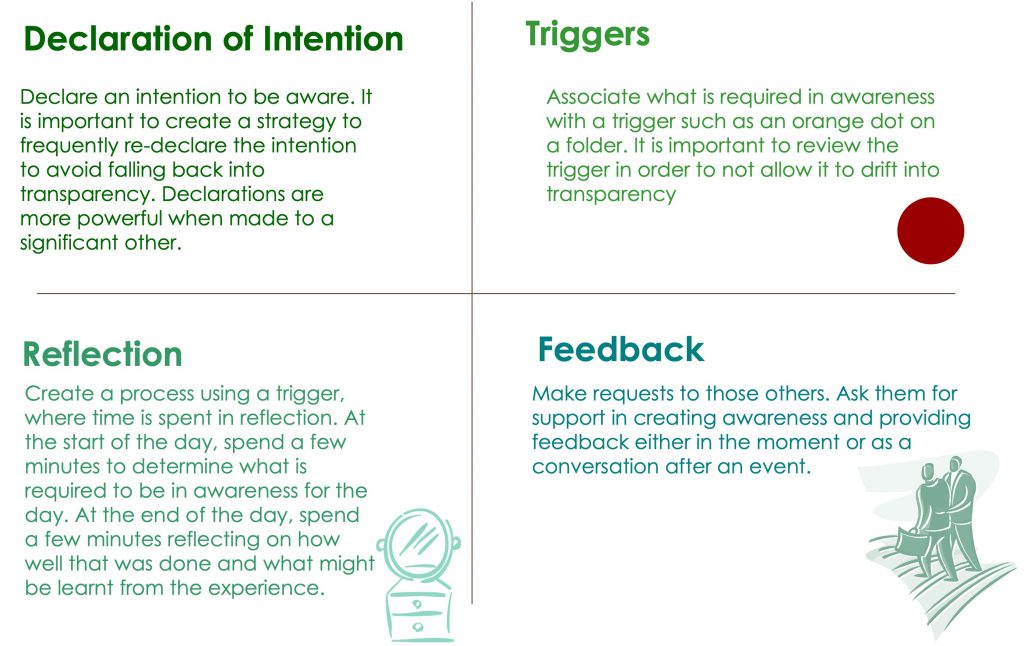
The principle underlying the formation of new habits is repetition so that we build the new neural connections. In order to repeat our desired actions requires intent. We have to choose the new action at the appropriate time and to this we must be aware that we are in such a choice point. Remember, control = awareness + choice.
One of the biggest challenges to developing new habits lies in the need for self-awareness at times when an old habit we are seeking to upgrade is likely to come to the fore.
Although there are no guarantees we have such awareness, we can use some strategies to support such mindfulness.
1. Declaration of Intention
Whenever we make a declaration, we put our self-story and, if the declaration is made to others, our reputation on the line. If we are seeking to create a new pattern of action, we are well served by telling others about it. We are also well served by making a declaration and meaning it. We can do this by speaking the words with authority and this is often helped by taking what we perceive to be a powerful physical posture as we speak the words.
2. Triggers
We can use association as a means of reminding ourselves to be aware. A trigger uses the of tying a string around your finger as a memory aid. This can be done in many ways. The advent of reminders on smart phones and computers is a one example. Simply set a regular and frequent reminder to pay attention as required. Although the reminder may not be required at the time, the reinforcement of the declaration for change can be enough to sustain our underlying awareness. An issue with triggers is we can become immune to them over time. Therefore it can be useful to change triggers at regular intervals.
3. Reflection
A daily reflective practice can provide a means of attaching us to our desired change. This can take many forms. It is useful to do this practice twice a day. The first practice involves anticipating what the day may bring and where possible choice points may occur. For example, if we are seeking to improve our listening skills then we may think about identify a couple of conversations where it would be valuable to focus on our listening. At the end of the day, we can then reflect on how we went in those conversations and also where else we may have acted as we wanted or not. As with triggers, this approach is aimed at our underlying awareness.
4. Feedback
We can also use other people to support us in the change process. We can ask trusted others to give us real time feedback as a means of raising our own awareness and putting us into a choice point. This can vary from using subtle cues to explicitly voiced feedback.
When used in concert, these four approaches provide a very supportive framework to enhance our awareness and put us into a choice point. The more choice points we encounter, the more likely we are to firstly not continue an old habit and also establish a new one.
